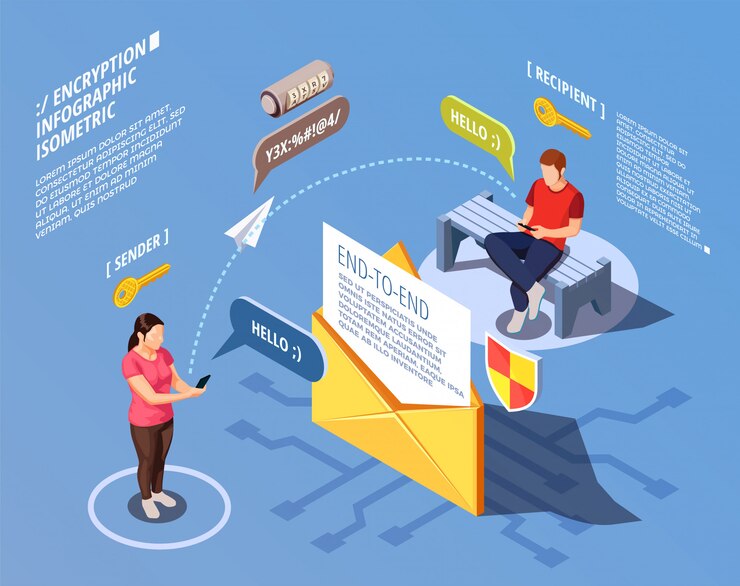In the realm of digital marketing, email and SMS (Short Message Service) are two of the quintessential channels used for promotional activities. Both platforms have evolved with technology and customer preferences, resulting in unique benefits and challenges for marketers aiming to reach their target audience. Email marketing provides a rich medium for crafted messages with images and extensive content, whereas SMS offers concise, immediate interactions with high readability. The choice between email and SMS can significantly impact a campaign’s effectiveness.
Open rates serve as a critical indicator of how often your marketing messages are seen by recipients. Generally, SMS tends to boast impressive open rates, often cited to be as high as 98%, while email open rates average around 20%. This stark contrast illustrates the immediacy and visibility of text messages compared to emails, which can get lost in crowded inboxes or filtered into spam folders.
Engagement Face-off: Analyzing Email and SMS Performance
Engagement with promotional content goes beyond opening a message. It’s about the actions consumers take after they view it. Emails offer interactive elements like links and videos that can drive users to a website, which can translate to higher engagement in some cases. However, the brief and to-the-point nature of SMS prompts quick responses, making it a formidable competitor where immediacy is key.
Decoding the Most Effective Communication Method: Email or SMS?
Determining the most effective communication method depends on the specific objectives and context of a campaign. Email is often preferred for detailed, graphic-rich marketing, providing consumers with substantial information. Conversely, SMS is unmatched in delivering time-sensitive alerts and short updates. The effectiveness of each method is contingent upon the intended goal of the communication.
Direct Comparison: Email and SMS Marketing Strategies
The strategies for email and SMS marketing differ substantially. Email allows for segmented, personalized campaigns with long-form content and is adaptable to customer journeys. On the other hand, SMS marketing is geared towards urgency and brevity, ideal for quick promotions and confirmations. Marketers must tailor their approach based on the strengths and limitations of each channel.
Conversion Showdown: Email and SMS
When it comes to driving conversions, both email and SMS have their success stories. Email can nurture leads over time, effectively guiding prospects through the sales funnel. SMS might trigger impulsive responses due to its immediate nature. Ultimately, conversion rates will vary across different industries and campaign types.
Cost Analysis: The Economic Viability of SMS and Email Marketing
The economic viability of each channel stems from the balance between cost and ROI. While both SMS and email marketing are relatively low-cost options, the former may incur higher costs per message sent. However, due to high open rates, SMS could potentially provide a better return on investment, especially for campaigns with a clear call-to-action.
Pros and Cons: Dissecting Email and SMS
Email marketing is versatile but can struggle with deliverability and requires a mobile-friendly design to meet users on all devices. SMS is limited by character count but excels in speed and deliverability. Both channels also face compliance issues, with strict regulations surrounding spam and user consent.
Effectiveness in Numbers: A Comparative Study of Email and SMS
Studies indicate varying effectiveness for both channels; while SMS shows higher open rates, email can boast a larger share of conversions. The best metric for effectiveness depends on business goals, whether it’s awareness, engagement, or conversion. Often, a combination of both channels leverages the strengths of each.
Reach and Accessibility: Email or SMS, Which Wins?
In terms of reach, email has a broader potential base with billions of active users worldwide. SMS, while having a vast user base too, can sometimes be more direct, often reaching users who have no internet access. As for accessibility, emails can be accessed at leisure, and SMS is typically read within minutes of receipt.
Response Rate Rivalry: Email Versus SMS Metrics
When evaluating response rates, SMS is the clear winner, with response times often under a few minutes. Email responses, however, can take hours or even days. The immediacy of SMS makes it an excellent channel for time-critical communications that require quick customer feedback.
Aligning with Consumer Preferences: Email and SMS Choices
Consumer preferences can dictate the efficacy of a promotional channel. Some consumers prefer receiving coupons and offers via SMS, while others might find emails less intrusive. Segmenting audiences and understanding their communication preferences is crucial for maximizing the effectiveness of both email and SMS marketing.
Strategies for Success: Combining Email and SMS Marketing
Combining email and SMS marketing can leverage the strengths of both channels. For example, an initial SMS can alert customers to a sale, followed by an email providing detailed information and imagery. Integrated strategies ensure broader coverage and multiple touchpoints with the customer.
Business Communication Breakdown: Email vs. SMS Impact
The impact of business communication through email or SMS varies by objective and target market. B2B communication often favors email, where detailed proposals and professional correspondence are standard. Conversely, B2C communication can benefit more from the conciseness and immediacy of SMS.
Final Verdict: Email or SMS for Effective Promotions
There is no one-size-fits-all answer when comparing email and SMS for promotions. The decision should be informed by factors such as target audience, message content, and campaign goals. A nuanced approach may involve using both channels in tandem, depending on the context and desired outcome. Ultimately, effective promotion hinges on understanding the strengths and weaknesses of both email and SMS and using them to complement each other in a holistic marketing strategy.



